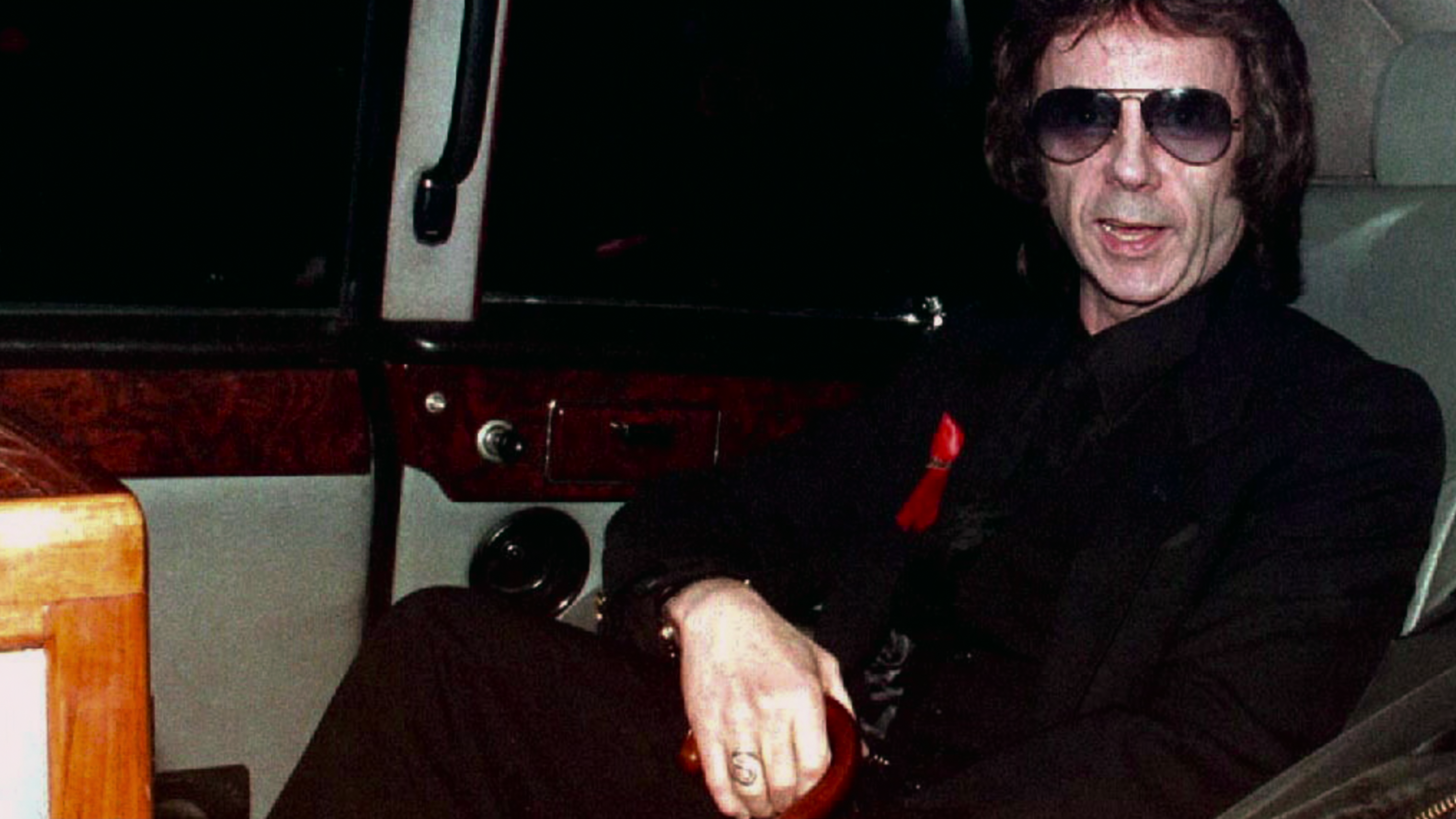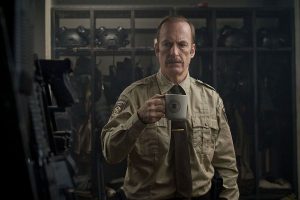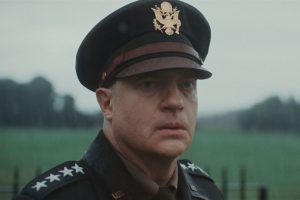
This article contains spoilers for Homicide: Los Angeles episode 1.
Phil Spector was a music legend and Los Angeles celebrity royalty. He revolutionized rock and roll with his “Wall of Sound” production, and went on to finalize The Beatles’ Let It Be. This means nothing to investigators on Homicide: Los Angeles. On Feb. 3, 2003, the body of Lana Clarkson, a 40-year-old actress and VIP Hostess of The House of Blues, was found dead in a chair in Spector’s foyer.
Netflix’s five-episode true crime docuseries fully covers the prosecutorial pursuit in one installment. Here’s what was condensed in discovery.
Lana Clarkson Was a Successful Actress
In the June 2003 article “Inside the Undoing of Phil Spector,” Spector told Esquire Clarkson “kissed the gun” before shooting herself. At trial, Spector’s attorneys claimed a depressed Clarkson used the 38-caliber pistol in his foyer. In spite of the Spector PR team’s smear campaign, Clarkson had no cause for depression. She recovered from the two broken wrists suffered during filming, and worked steadily through 2001. Besides, the House of Blues job overflowed with professional connections.
Media labeled Clarkson a failed bargain basement actor, though she’d scored small parts on such TV series as Night Court, Silk Stalkings, Three’s Company, and Wings, as well as the films Scarface, Fast Times at Ridgemont High, and Deathstalker. The 5’11” Clarkson was also featured in John Landis’ spoof Amazon Women on the Moon. Her title role in Roger Corman’s Barbarian Queen led to sequels, and a cult following.
As Homicide: Los Angeles points out, Clarkson took pride in her B-Movie Warrior Queen status. She was a natural athlete, playing basketball for Cloverdale High School, and lifelong horseback enthusiast. Clarkson was resilient, and no stranger to personal loss. Her father, who worked in mining, died when she was 16 years old.
Phil Spector Had a Tragic Childhood
Spector was 9 when his father parked on the way to his construction job in Brooklyn, ran a hose from the exhaust pipe to his car’s interior, and left the motor running. According to Mick Brown’s biography, Tearing Down the Wall of Sound: The Rise and Fall of Phil Spector, a childhood friend remembers Spector’s mother Bertha “would say, ‘Your father killed himself because you were a bad child.’” The lyrics to Spector’s first hit, “To Know Him Was to Love Him,” came from his father’s tombstone.
The recording of that song also provides an early indication of the violence which would come to define Spector’s legacy. In the Showtime documentary series Spector, Carol Connors, a singer in The Teddy Bears, the trio Phil formed in high school, remembers the songwriter’s reaction to a cracked note during rehearsal. “Phil put me up against the wall and said, ‘If you fuck up my song, I’m gonna kill you,’” Connors says.
Spector’s relationship with guns can be traced back to a 1958 incident which happened during a Teddy Bears tour. Spector claimed four men trapped him in a bathroom and urinated on him when he couldn’t defend himself. In later interviews Spector said he employed bodyguards and carried personal protection from that day on.
Big Shot in The Studio
Homicide: Los Angeles, by Law & Order creator Dick Wolf, goes by the book, reading Spector’s history with firearms into the record. The episode notes a 1972 arrest and guilty plea for carrying a loaded firearm in public; a 1975 Beverly Hills hotel incident where Spector pleaded guilty to brandishing a firearm. In a November 2003 confrontation, Spector allegedly threatened “I’m gonna go get my gun and blow you away” at three men in a Starbucks. No longer limited to touring, and now endangering fast food, firearms became a final decider in the studio.
John Lennon hired the producer consecutively, from his Plastic Ono Band to the Some Time in New York City albums. He returned to Spector in 1973 for a record of “oldie but moldy” rock ‘n’ roll cover songs. The sessions floundered as Spector set his own time table, and showed up high in special wardrobes. From karate master to plastic surgeon, every costume accommodated a holster, usually sheathing a loaded weapon. If not, it was drawn to make noise in the studio.
Spector fired a revolver inches from Lennon’s ears in the confines of a mixing console. “Phil, if you’re going to kill me, kill me,” Lennon screamed, according to Crime of the Century: Classic Rock and True Crime, by Angie Moon. “But don’t fuck with my ears.” This wasn’t an isolated incident. Spector yelled threats and pulled a weapon on Lennon as he was chasing the former Beatle through the studio hallways. Spector ultimately ransomed the master tapes to Capitol Records for $90,000. When a messenger came to collect, Spector greeted him at the door brandishing an ax.
“[Phil Spector] said a couple of things to Cher that made her cry,” Andy Kim, who co-wrote and sang The Archies’ 1968 smash “Sugar, Sugar,” told Goldmine in 2016. “Then had that gun pointed at me. I just thought, you know what? This is a good headline. Andy Kim, shot and killed by Phil Spector.” While songwriting sessions for Leonard Cohen’s 1978 album Death of A Ladies’ Man went smoothly, arrangement differences turned to battles, and Spector came “armed to the teeth,” according to Cohen, per Tearing Down the Wall of Sound.
Debbie Harry didn’t even get to the studio before Spector “pulled a gun,” Blondie’s iconic singer told NME. During discussions for a possible project, “He stuck it in my boot and went, ‘Bang.’ I thought, ‘Get me outta here. I just wanna go home.’ Why would anyone be carrying a .45 automatic in their home?” The Ramones hired Spector in 1979, for the album End of the Century. In Commando: The Autobiography of Johnny Ramone, Johnny Ramone remembers facing the wrong end of a revolver, but says bassist Dee Dee Ramone got the worst of it. At the end of sessions, Spector disappeared with the master tapes for six months.
Imprisoning a Singing Legend
Ronnie Spector’s 1990 autobiography, Be My Baby: How I Survived Mascara, Miniskirts And Madness, is a harsh indictment of the man behind the console. Veronica Bennett led The Ronettes when she met Spector. Before becoming his second wife, the production run of their union yielded, among many other hits, “Be My Baby,” which The Rolling Stones’ Keith Richards calls “one of the greatest songs ever recorded.” When The Ronettes toured England with The Rolling Stones, Spector ordered Bennett confined to her hotel room.
The couple’s 1968 wedding day ended with a physical fight and accusations about marrying for money. Ronnie filed for divorce three months after the marriage. After a reconciliation, Spector held the singer hostage, derailing any musical output. Ronnie’s autobiography describes barbed wire fences, and details being tied up, locked in a closet, and having all shoes hidden so she couldn’t walk out. Spector gifted a gold coffin with a glass top to his eternal bride. He threatened to kill her if she left him, saying he would display her corpse in it so “I can keep my eye on you after you’re dead.”
Ronnie shattered a sliding door and escaped barefoot in 1972. She divorced Spector in 1974. It was granted in 1975. Keeping custody of their adopted children, Phil wrote “Fuck You” on all of Ronnie’s alimony checks.
“Is Anybody Being Held Against Their Will?”
During the Lana Clarkson murder trials, witnesses recounted similar encounters. Singer Devra Robitaille told Spector she was going home after a party. “He said no and locked the door,” Robitaille testified, according to a Today article from Aug. 21, 2007. “I remember standing in the lobby with a door in front of me and when I turned there was a gun pointed at my temple. It was touching my temple. He said ‘If you leave I’ll blow your [expletive] head off.’”
Music industry photographer Stephanie Jennings testified to accompanying Spector to the 1995 Rock and Roll Hall of Fame inductions. Both had rooms on the same floor at New York’s Carlyle hotel. Jennings refused a bodyguard’s message to join Spector in his room. After an argument with a drunken Spector grew into an altercation, he returned with a gun, put a chair in front of the door, “and said I wasn’t going anywhere,” Jennings testified, according to the May 7, 2007 issue of Today.
Melissa Grosvenor told the court she met Spector in New York in 1991, and had a platonic relationship for a year and a half, according to the Los Angeles Daily News. She testified going to Spector’s house after a dinner in Beverly Hills, and starting to leave around 2 a.m. “He walked up, held the gun to my face between my eyes and said, ‘If you try to leave, I’m going to kill you,’” Grosvenor testified. When she returned to New York she was greeted with multiple phone messages in the vein of “I’ve got machine guns and I know where you live.”
Though never called to testify, according to Tearing Down the Wall of Sound, Michelle Phillips of The Mamas and The Papas also came in close range. According to Ann Marshall, a friend of Spector’s since the Teddy Bears, the pair paid a visit to the producer’s La Collina mansion.
“Michelle announced that she had to leave, to meet another friend who was supposed to be joining them,” Marshall remembers in Tearing Down the Wall of Sound. “When Michelle returned … Spector let her in and then locked the door behind her. ‘He had a gun in his hand,’ Michelle remembers, ‘and then he says, ‘Now no one is leaving.’”
This was apparently not a new occurrence at the household. “’Two officers from the Bel Air police arrived at the house, alerted by Phillips’s friend,’ [Michelle Phillips said],” Marshall continues. “’They came into the living room and Phil was standing there with the gun. And they said, ‘Mr. Spector, put the gun down.’ So, he rather reluctantly put the gun down. And they said, ‘Is anybody here being held against their will?’ And Ann and I put up our hands. They said, ‘Would you two come with us, please.’ And then they turned to him and they said, ‘Mr. Spector, we have warned you about this over and over again.’”
Homicide: Los Angeles is streaming on Netflix.
The post What Homicide: Los Angeles Leaves Out About the Phil Spector Murder Case appeared first on Den of Geek.












